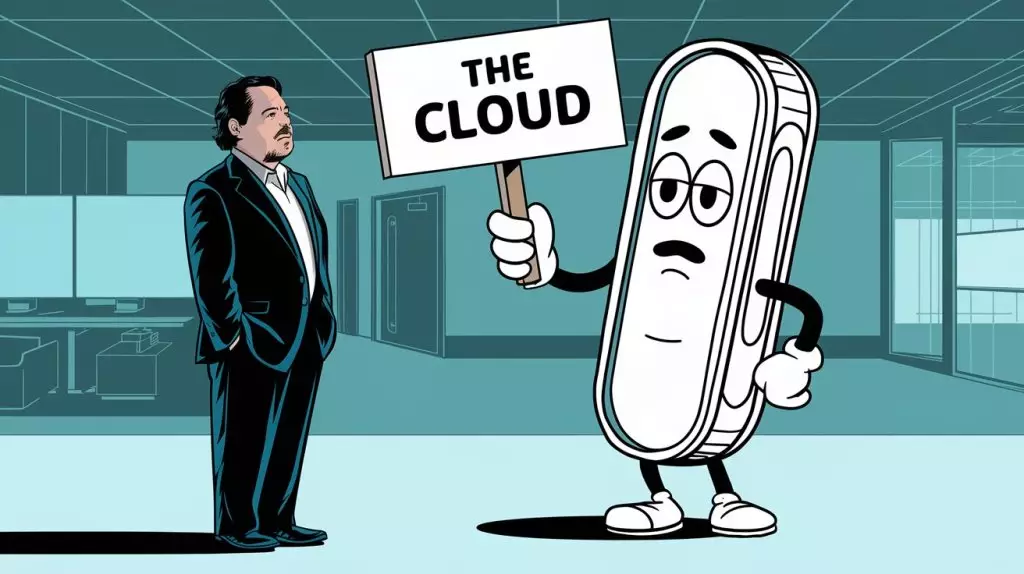In the world of technology, competition often brings about sharp critiques, and recent remarks by Marc Benioff, the co-founder and CEO of Salesforce, clearly illustrate this point. Using his platform on X (formerly Twitter), Benioff made headlines by lambasting Microsoft’s AI assistant, Copilot, dubbing it “disappointing.” This public critique not only highlights the fierce rivalry in the tech sphere but also raises important questions about the current state and future trajectory of AI implementations in business environments.
Benioff’s statement that “Copilot is more like Clippy 2.0” evokes a wave of nostalgia tinged with sarcasm. The Clippit character, or “Clippy,” debuted in the mid-1990s as an on-screen assistant, intended to help users navigate Microsoft Word and other Office applications. However, it often frustrated users more than it helped, and as such, has become a symbol of what can go wrong with AI in user interfaces. By drawing this comparison, Benioff insinuates that Microsoft has failed to evolve its AI capabilities meaningfully and is instead rehashing past mistakes with new technology. This analogy resonates particularly with those who have historical grievances against Clippy, capturing both humor and criticism.
Microsoft’s Copilot, powered by OpenAI’s GPT models, is built to enhance user experience in Office 365 and has since expanded its reach. Launched initially in March 2023, it has introduced several innovative features. The tools now include advanced functionalities such as visual processing and conversational AI, attempting to bridge the gap between human-like interaction and software assistance. However, Benioff seems unmoved by these advancements, dismissing them as inadequate.
Ironically, while he expresses skepticism toward Microsoft’s AI rollout, Benioff has historically been an advocate for artificial intelligence’s potential, previously praising its capabilities in revolutionizing business solutions. His recent comments, suggesting that “much of AI’s potential is oversold” and that it is not yet solving significant global challenges, indicate a shift in his stance. This raises questions about the sincerity and consistency of his beliefs surrounding AI’s role in business and society.
Benioff’s critique carries an inherent bias given Salesforce’s own competitive interests. Salesforce’s CRM tools directly contend with Microsoft Dynamics 365, and platforms like Slack are in constant competition with Microsoft Teams. This context inevitably colors his commentary on Copilot. While it is common for industry leaders to criticize competitors as a strategy for market positioning, Benioff’s dual commentary on the promise of AI versus its current implementation reflects an intriguing tension.
He seems to navigate a complex landscape: touting AI as a transformative force for business while simultaneously delegitimizing Microsoft’s specific execution of it. The juxtaposition between his acknowledgment of AI’s capabilities at Salesforce through tools like Agentforce, which he claims to be a groundbreaking feature, underlines the self-serving nature of his critique. This positions him not only as a company leader but also as a stakeholder in convincing potential clients and investors of the superiority of Salesforce’s offerings.
Benioff’s comments have not gone unnoticed. Public relations professionals and industry analysts have seized upon his criticisms as indicators of a growing skepticism towards AI’s trajectory and efficacy among tech leaders. While some view his remarks as a reflection of genuine concerns about AI’s promises, others see it as an opportune moment to cast doubt on Microsoft amidst shifting public sentiment.
As the tech industry grapples with the challenges and pitfalls of rapidly evolving AI technologies, the discourse surrounding these developments becomes increasingly significant. Benioff, with his strategic positioning, contributes to this dialogue, but whether his critiques will sway public opinion—and ultimately, purchasing decisions—remains to be seen.
Benioff’s criticisms of Microsoft’s Copilot illuminate a broader conversation about the evolution of AI in business. While he raises valid points about user experience and performance, they are intertwined with his role as a competitor in the tech arena. As the market continues to develop and explore the limits of AI’s capabilities, both in functionality and real-world applications, the stakes are high for all players involved.

